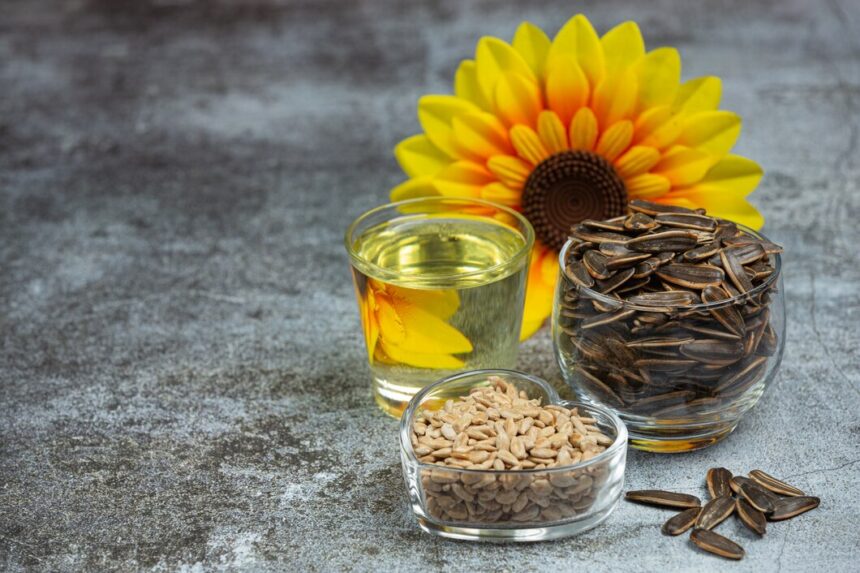Sunflower seeds are a vital crop in South Africa, prized for their versatility and nutritional value. As one of the country’s leading oilseed crops, sunflowers play a crucial role in the agricultural sector, providing oil for cooking, animal feed, and biodiesel production. To maximize the potential of sunflower cultivation, farmers employ various techniques aimed at enhancing both the quality and yield of sunflower seeds. Let’s explore some of these techniques and their importance in South Africa’s agricultural landscape:
1. Proper Soil Preparation:
The foundation of a successful sunflower crop begins with proper soil preparation. Sunflowers thrive in well-drained, fertile soil with a pH level between 6.0 and 7.5. Farmers employ techniques such as plowing, harrowing, and soil testing to ensure optimal soil conditions for sunflower cultivation. Adequate soil moisture and nutrient levels are essential for promoting healthy plant growth and maximizing yield potential.
2. Crop Rotation:
Crop rotation is a common practice employed by farmers to prevent soil depletion and reduce the risk of pests and diseases. Alternating sunflower crops with other compatible crops such as maize, soybeans, or legumes helps break pest and disease cycles while replenishing soil nutrients. Additionally, crop rotation can improve soil structure and fertility, leading to higher-quality sunflower seeds and increased yields over time.
3. Optimal Planting Practices:
Timing and spacing are crucial factors in maximizing sunflower seed yield. Planting should ideally occur during the spring or early summer months when soil temperatures are warm and frost risk is minimal. Farmers utilize planting techniques such as row spacing, seeding rates, and planting depth to optimize plant growth and spacing. Adequate spacing between plants allows for optimal sunlight penetration, air circulation, and nutrient uptake, resulting in healthier plants and higher yields.
4. Fertilization and Nutrient Management:
Sunflowers have specific nutrient requirements at different growth stages, and proper fertilization is essential for meeting these needs. Farmers employ soil testing and nutrient management practices to determine appropriate fertilizer applications based on soil nutrient levels and crop requirements. Balanced fertilization with nitrogen, phosphorus, potassium, and micronutrients promotes vigorous plant growth, improves seed quality, and enhances yield potential.
5. Pest and Disease Management:
Pests and diseases pose significant threats to sunflower crops and can negatively impact yield and quality if left unmanaged. Integrated pest management (IPM) strategies, including cultural, biological, and chemical control methods, help farmers mitigate pest and disease pressure while minimizing environmental impact. Monitoring for pests and diseases, implementing preventive measures, and timely intervention with appropriate control measures are essential for protecting sunflower crops and maximizing yield potential.
6. Harvesting and Post-Harvest Practices:
Proper harvesting and post-harvest handling are critical for preserving seed quality and maximizing yield. Farmers aim to harvest sunflowers at the optimal stage of maturity to achieve maximum seed size and oil content. Efficient harvesting techniques, such as using specialized equipment and adjusting harvesting speed, minimize seed loss and damage during harvesting. After harvest, proper drying, cleaning, and storage practices help maintain seed quality and prevent spoilage, ensuring the highest possible yield and market value.
In conclusion, enhancing the quality and yield of sunflower seeds in South Africa requires a combination of agronomic practices, pest and disease management strategies, and post-harvest handling techniques. By implementing these techniques, farmers can optimize sunflower crop production, meet market demands, and contribute to the sustainable growth of the agricultural sector. With continued innovation and investment in research and technology, South Africa’s sunflower industry holds promising prospects for the future.
Join 'Farmers Mag' WhatsApp Channel
Get the latest Farming news and tips delivered straight to your WhatsApp
CLICK HERE TO JOIN






